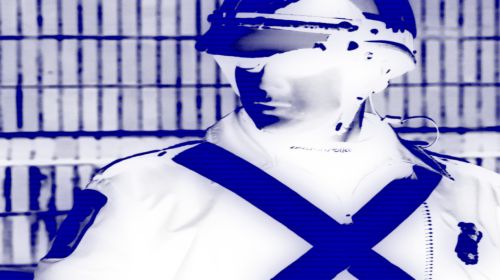Data Suggests Boston Police Targeted Black & Working Class Areas For Surveillance


Earlier this week the ภฯฐฤรลฟชฝฑฝแน๛ of Massachusetts for a statewide moratorium on the use of license plate readers. We did so because a revealed serious abuses by the Boston Police Department in its use of the controversial surveillance technology. Even the BPD itself announced that it was putting its license plate reader program on hold, until it could come up with policies and procedures to address the serious issues the Globe uncovered.
Reporter Shawn Musgraveโs nearly year-long investigation found that police, contrary to claims about why departments supposedly needed plate readers, routinely failed to respond to alerts notifying them of the presence of stolen cars. In one case, a stolen motorcycle passed by a license plate reader nearly 60 times over a period of months, and police apparently never did anything about it. That signaled to us that the BPD was really just using plate readers to collect intelligence โ vast troves of information about where motorists drive, and when. The Globe investigation also found that license plate reader data appears to have been stored for months longer than the Departmentโs retention policy stipulates. And thatโs not all.
A follow-up report published on raises more alarms. The data Musgrave obtained via public records request suggests that the Boston Police Department specifically targeted black and working class neighborhoods when it deployed its license plate reader program. Police apparently weren't doing much to follow the leads the technology gave them in these neighborhoods, but instead just collected lots of data.
Itโs difficult to say for certain if this is the case, because the data is incomplete; the BPD has thus far refused to release the missing information to Musgrave or the Globe. Specifically, some of the thousands of license plate reads in the spreadsheets disclosed to the reporter did not contain GPS coordinates. Itโs therefore impossible to conclusively determine whether or not the BPDโs plate reader program was predominately deployed in Dorchester, Mattapan, Roxbury, South Boston, and Brighton, as the available data suggests.
The Boston Police Department should release the rest of the GPS coordinates to Musgrave so that the public can have a full accounting of the license plate reader program. We need to know if, as it appears, the police focused its plate reader program in working class and black neighborhoods. This outcome wouldnโt exactly be shocking. Anyone familiar with the field knows that racial disparities in policing are rampant, historically and today.
But as high-powered surveillance technologies flood police departments and cities and towns nationwide, we have to be very careful that this history (and current reality) of disparate policing doesnโt get a boost from seemingly neutral computer systems -- and that the technology doesn't work to obscure the disparity.
Proponents of license plate readers have that the technology helps officers avoid the charge of racial profiling when they pull over cars. Thatโs because the readers flag license plates, not people. If the police are only using license plate readers in black and working class neighborhoods, however, it doesnโt matter if the machine only detects plates and not faces. The outcome is the same: unequal treatment and disproportionate police attention to certain groups of people, based on where they live โ not anything theyโve done. Technology is not neutral as long as human beings design and operate it, and plate readers are no different.
Like most American cities, Boston has a very difficult history โ and present โ when it comes to racism and race relations, and the police are part of that difficult narrative. These extremely troubling findings should be seen in that context, but we need to know more. The Department should promptly release the rest of the data, so that we can understand exactly what happened with the license plate reader program.
One thingโs for sure: the BPDโs experience with this powerful surveillance tool shows that, when it comes to invasive technologies, police departments cannot be trusted to police themselves. The Massachusetts legislature must act to . Until then, motorists statewide remain at risk of being tracked for no good reason.
Cross-posted from the ภฯฐฤรลฟชฝฑฝแน๛ of Massachusetts blog.


